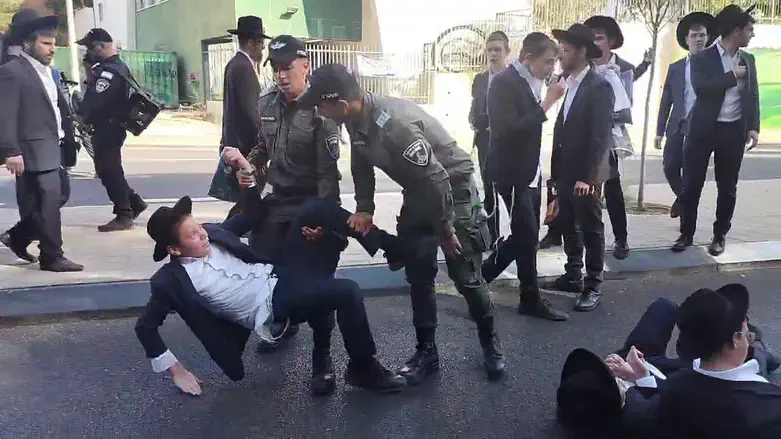
In a meeting with students held at his home, Rabbi Betzalel Pinchasi, Rosh Yeshiva of Birkat Ephraim, addressed the claims being made in the haredi community that members of the Sephardic communities might be harmed more by the developing draft law.
Pinchasi firmly rejected these claims. "I think just the opposite," he said in response to the students' questions.
"The Hasidic master the Yaavetz wrote in his book that those who stood strong against the decrees of the Christian kingdom and the expulsion from Spain are precisely the simple people who have simple faith. We Sephardim have simple faith, and we will give our lives if needed."
Rabbi Pinchasi emphasized that "this view that we are second class is incorrect. Besides the fact that today the Sephardic Torah community has a very high level, they also have a natural dedication."
During the conversation, the Rosh Yeshiva expanded the discussion to the historical and cultural aspects of the Sephardic community. He claimed that in the last two hundred years, there has been a decrease in the number of yeshivas in Sephardic communities, but the trend has reversed in recent years.
"Today, as the times have changed, there are magnificent Sephardic yeshivas," said Pinchasi. "In our communities, there are wonderful yeshivas that instill a way of learning deeply and with understanding. Today there are young scholars at a high level, with depth, knowledge, and precise understanding of Jewish law."
When asked about the claim that modern Sephardic education mimics the Ashkenazi way of learning, Pinchasi replied: "It is not the case that we are becoming like our Ashkenazi brothers; we simply need to restore the situation that existed in the times of the great leaders of Jewish Spain. It is about returning our community to its former glory."
The Rabbi added that he supported the establishment of separate communities for Sephardic Torah scholars, despite the criticism he received for it in the past. "A community of Torah scholars enhances the level of the students, and eventually, Torah kindergartens and smaller yeshivas are opened, and the entire structure, including that of the laymen, becomes more exalted and connected to the world of Torah," he explained.
